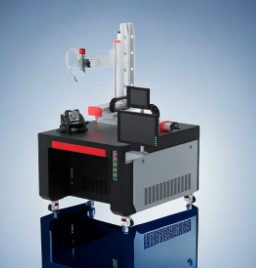Air conditioning systems are essential for maintaining comfort in homes, offices, and industrial settings. However, environmental factors like humidity, saltwater exposure, and pollution can lead to the gradual degradation of components, significantly reducing the system’s efficiency and lifespan. This is where Anti corrosion air conditioning come into play. In this article, we’ll explore why anti-corrosion technology is critical for air conditioners, the benefits it offers, and how you can ensure your system remains in peak condition for longer.
What Is Anti-Corrosion Technology in Air Conditioning Systems?
Anti-corrosion technology refers to the use of specialized materials or coatings designed to prevent corrosion or rust from forming on metal components, particularly in environments prone to moisture, salt, and pollutants. In air conditioning units, this typically involves the use of corrosion-resistant coils, protective coatings, and improved sealing systems to protect the unit’s vital components.
Why Anti-Corrosion Technology Matters for Air Conditioning Systems
-
Enhances Durability and Longevity
-
Corrosion is one of the leading causes of failure in air conditioning units. Salt from sea air, high humidity, and environmental pollutants can damage the metal coils and condenser fins, leading to leaks and mechanical failures. Anti-corrosion systems add an extra layer of protection, ensuring that the system runs for years without the need for costly repairs or replacements.
-
-
Improves System Efficiency
-
When corrosion builds up on air conditioning components, it can create resistance, causing the system to work harder. This added strain leads to energy inefficiency, driving up electricity bills. Anti-corrosion coatings help maintain smooth operation, ensuring the air conditioning system runs optimally, conserving energy and reducing operational costs.
-
-
Reduces Maintenance Costs
-
Corrosion can lead to the need for frequent repairs and replacement of parts. By preventing corrosion in the first place, anti-corrosion technology minimizes the need for repairs and costly replacements, reducing long-term maintenance expenses.
-
Types of Anti-Corrosion Technologies Used in Air Conditioners
Several anti-corrosion technologies are available, each designed to address different environmental challenges. Here are the most common types:
1. Blue Fin Technology
-
What It Is: Blue Fin technology refers to a special coating applied to the evaporator and condenser coils. This protective layer prevents corrosion caused by moisture and pollutants.
-
Benefits: The coating ensures that the system’s heat exchange surfaces remain free from rust, enhancing both efficiency and lifespan.
2. Gold Fin Coils
-
What It Is: Gold Fin is a premium anti-corrosion technology used on coils. It adds a layer of gold-colored protective coating that shields the coils from the damaging effects of salty air, water, and other environmental factors.
-
Benefits: Provides additional protection against harsh weather conditions, making it ideal for coastal areas or places with high humidity.
3. Aluminum Alloy Coils
-
What It Is: These coils are made from corrosion-resistant aluminum alloy, which is less prone to damage compared to traditional copper coils.
-
Benefits: In addition to corrosion resistance, aluminum alloy coils are lightweight and cost-effective, making them an attractive option for both residential and commercial units.
4. Copper Coils with Anti-Corrosion Coating
-
What It Is: Copper is a common material for air conditioner coils due to its heat-conductive properties. When paired with a protective anti-corrosion coating, copper coils become even more durable.
-
Benefits: Copper’s natural resistance to corrosion is enhanced by the coating, offering improved protection and longer operational life.
The Impact of Environmental Factors on Air Conditioning Systems
Understanding how different environmental elements affect air conditioning units can help you appreciate the importance of anti-corrosion technology.
1. High Humidity
-
Challenge: Humidity promotes rust and corrosion, especially on exposed metal parts like coils and fins.
-
Solution: Anti-corrosion coatings help protect against the damaging effects of moisture.
2. Saltwater Air (Coastal Areas)
-
Challenge: Salt from the ocean air can accelerate corrosion, particularly for air conditioners installed in coastal regions.
-
Solution: Anti-corrosion systems, such as Blue Fin technology, are specifically designed to combat saltwater corrosion.
3. Pollution and Chemicals
-
Challenge: Urban and industrial pollution can corrode air conditioning systems, especially if exposed to harsh chemicals.
-
Solution: Anti-corrosion air conditioning systems are designed to offer added protection in polluted areas.
Benefits of Anti-Corrosion Air Conditioning Systems
1. Increased System Efficiency
-
By protecting key components from corrosion, air conditioning systems maintain optimal airflow and heat exchange capabilities, which reduces energy consumption.
2. Better Air Quality
-
Well-maintained air conditioners filter air more effectively. Anti-corrosion systems prevent mold and rust build-up that could compromise indoor air quality.
3. Improved Aesthetics
-
Corrosion can cause unsightly stains and deterioration on the exterior of your air conditioner. Anti-corrosion technology preserves the aesthetic appeal of your unit.
4. Environmental Protection
-
With fewer repairs and replacements needed, anti-corrosion air conditioning systems contribute to sustainability by reducing waste and the consumption of resources.
FAQ: Common Questions About Anti-Corrosion Air Conditioning
Q1: How do I know if my air conditioner has anti-corrosion technology?
-
Answer: Check the product specifications or consult with the manufacturer to confirm if the unit includes any protective coatings like Blue Fin or Gold Fin technology.
Q2: Can anti-corrosion technology work in all climates?
-
Answer: Yes, anti-corrosion technology is effective in both coastal and inland climates. However, it is particularly beneficial for units exposed to saltwater or high humidity.
Q3: Is anti-corrosion technology standard in all air conditioners?
-
Answer: No, not all air conditioning units come with anti-corrosion technology. Premium models and those designed for harsh environments often feature this technology.
Q4: How often should I service my air conditioner with anti-corrosion technology?
-
Answer: Even though anti-corrosion technology helps extend the life of the unit, regular maintenance such as cleaning filters and checking refrigerant levels is still recommended every 6-12 months.
Key Factors to Consider When Buying Anti-Corrosion Air Conditioning Systems
Before investing in an air conditioning unit with anti-corrosion features, consider the following factors:
| Factor | Importance |
|---|---|
| Location | Coastal or high-humidity areas benefit greatly from anti-corrosion systems. |
| System Size and Capacity | Larger units or those used for commercial purposes require stronger protection. |
| Type of Anti-Corrosion Technology | Blue Fin, Gold Fin, or aluminum alloy coils provide different levels of protection. |
| Energy Efficiency | Consider the energy-saving potential of the system alongside anti-corrosion features. |
Final Thoughts on Anti-Corrosion Air Conditioning Systems
When choosing an air conditioning system, it’s crucial to think about long-term performance and durability. Anti-corrosion technology provides essential protection against environmental factors that can compromise the unit’s efficiency, lifespan, and maintenance costs. Whether you live in a coastal area or simply want to ensure your air conditioning system lasts longer and performs better, investing in an anti-corrosion unit is a wise decision.




